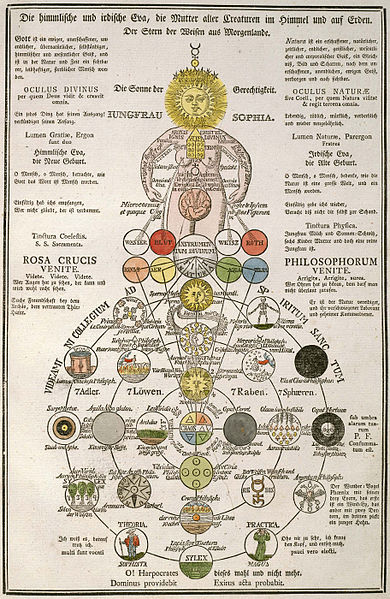Sophia is a major theme, along with Knowledge, among many of the early Christian knowledge theologies grouped by the heresiologist Irenaeus as gnostikoi (γνωστικοί), "knowing" or "men that claimed to have deeper wisdom". Gnosticism is a 17th-century term expanding the definition of Irenaeus' groups to include other syncretic faiths and the Greco-Roman mysteries.
A mystical depiction of Sophia from Geheime Figuren der Rosenkreuzer, Altona, 1785.
Helen on the Ramparts of Troy by Frederick Leighton; an incarnation of the Ennoia in the Simonian system.
Irenaeus was a Greek bishop noted for his role in guiding and expanding Christian communities in the southern regions of present-day France and, more widely, for the development of Christian theology by combating heterodox or Gnostic interpretations of Scripture as heresy and defining proto-orthodoxy. Originating from Smyrna, he had seen and heard the preaching of Polycarp, who in turn was said to have heard John the Evangelist, and thus was the last-known living connection with the Apostles.
20th-century Greek icon depicting Saint Irenaeus
Irenaeus, in Church of St Irenaeus, Lyon.
Cambridge University library manuscript 4113 / Papyrus Oxyrhynchus 405. Irenaeus. Ca. 200 AD.





